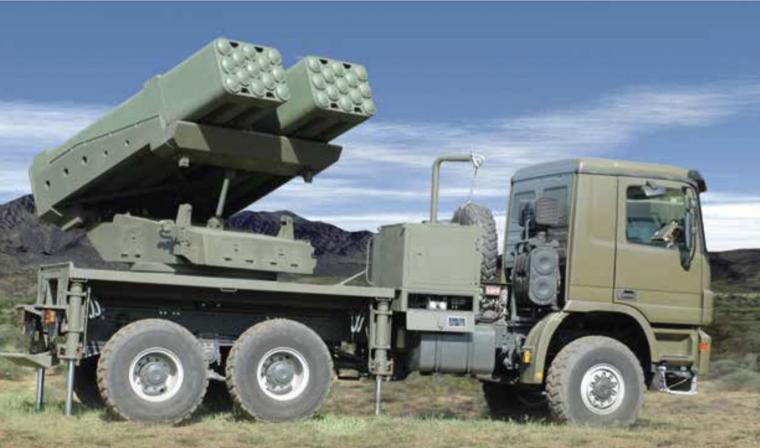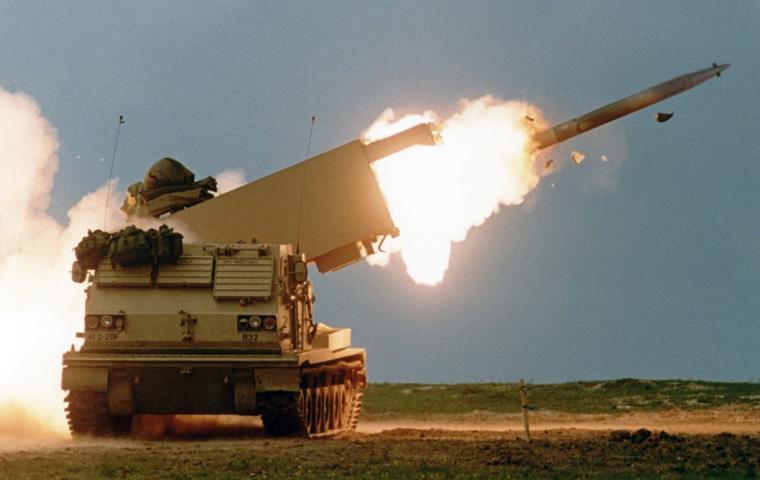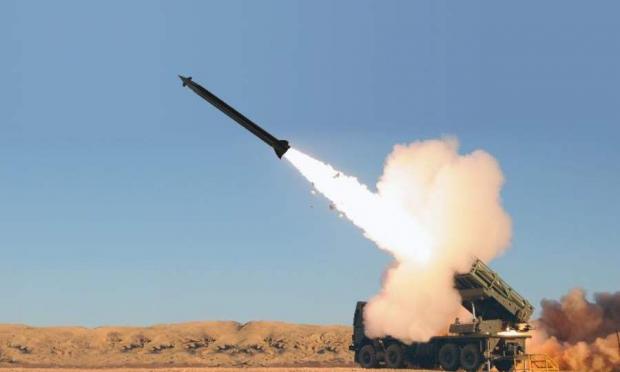The Netherlands is seeking to re-introduce a rocket-propelled artillery with a range of more than 43 miles, a capability its armed forces lost in the 2000s. And it is bucking the trend of many NATO allies in the process, turning to the "darker," Israeli PULS (Precise and Universal Launch System) construction instead of the US M142 HIMARS system. HIMARS has been making headlines since its dramatic debut in the war in Ukraine last summer.
Dutch Minister of Defense Christophe Van der Maat presented a brief description of the decision:
“Compared to HIMARS, more precision guided missiles are delivered within the budget. PULS also has greater operational viability because it carries more missiles. The PULS artillery rocket system also has an open architecture that makes it suitable (in the near future) for new types of ammunition from European producers. This contributes to increasing European strategic autonomy."
The Netherlands will initially receive four non-deployed PULS launchers in 2023. These will be used for training and for the engineering and development of their integration into domestically-built Scania-Gryphus 8x8 trucks already acquired under the DVOW programme.

The Netherlands will not be the only PULS operator from NATO as, in January, Denmark also ordered eight PULS systems, apparently equipped with $70 million worth of Accular-122 missiles.
Germany may also be leaning towards a PULS market, as the German company KMW has partnered with Elbit on rocket artillery. Having close allies using the same systems can facilitate effectiveness by maintaining a "use group" that pools spares, training and ammunition.
But PULS has other advantages besides price that set it apart compared to HIMARS. Mainly, it is much more flexible.
The era of HIMARS
As of 2022, the US has donated at least 38 HIMARS systems to Ukraine, armed with GMRLS missiles but not ATACMS missiles. These did a lot of damage when they became operational, with long-range raids in July and August 2022 destroying several Russian artillery ammunition depots and killing several high-ranking officers in their command centers.
Even now, there are still no images confirming the loss of a single HIMARS launcher, despite Russian claims that they destroyed more than what was delivered (and the Russian military has provided visual proof of the destruction of many other Western artillery systems).

These results allowed HIMARS to remain useful, even if they proved unsustainable as Russian forces withdrew their logistical bases and headquarters out of range.
Russia's invasion and early success of HIMARS led to a new order queue for HIMARS, including Australia (20), Estonia (6), Latvia (6), Lithuania (8) and Poland, which raised a previous order of 20 to buy an option up to 486! Countries with continuous orders from before the war in Ukraine include Taiwan (11 to 29) and Romania (54).
PULS vs HIMARS
The case for PULS as an alternative is that it can do many of the same things as HIMARS, for less money and with added functionality. And it places two missile launchers on one HIMARS by default.
But more importantly, the PULS can mount six different classes of guided and unguided munitions, simply loaded with preloaded pods.
To hit more distant targets, PULS can mount two pods, each with four EXTRA 306mm guided missiles with a range of 93 miles. To be fair, HIMARS will in a few years match this range, as the new GMLRS-ER variant of its 227mm rocket enters production this year.

Israel's PULS units can also launch the Delilah subsonic cruise missile, flying much lower and slower, at 155 miles and with even greater accuracy.
And compared to Soviet-era artillery systems, PULS can deliver results similar to the BM-21, BM-27 and BM-30 missile systems as well as the older OTR-21 Tochka ballistic missile.
This means that the same launcher can be used for a wide range of different missions, from precision strikes targeting bunkers, air defenses and headquarters behind enemy lines, to targets close to the front line and old-school saturation bombing over a wide area.
Major arms markets are inevitably fraught with politics. In particular, Israel will not allow the direct sale or donation of third-party PULS or other defense products to Ukraine, fearing Russian retaliation in the form of arms transfers to Iran or Syria.



